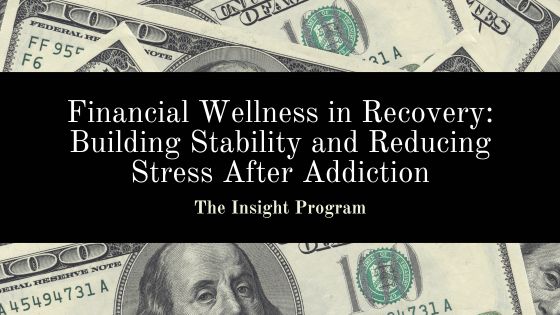Recovery is about more than overcoming addiction. It is also about creating a stable and fulfilling life that supports long term sobriety. One important but often overlooked aspect of this process is financial wellness. Money challenges can create stress, which may trigger old habits or negative coping mechanisms. By focusing on financial stability, individuals in recovery can reduce stress, build confidence, and create a healthier foundation for the future.
The Link Between Finances and Recovery
Addiction often impacts finances in significant ways. Whether it is debt, lost income, or disrupted employment, the financial effects can linger even after sobriety begins. These challenges can feel overwhelming, but addressing them is an essential part of recovery. Developing financial wellness restores a sense of control, which is important for maintaining balance and avoiding unnecessary stress.
Money management also affects mental health. Financial stress can heighten anxiety, reduce self esteem, and strain relationships. By learning how to budget, plan, and save, individuals not only improve their financial situation but also strengthen their emotional resilience and peace of mind.
Building a Budget That Works
One of the first steps in financial wellness is creating a simple and realistic budget. A budget is not about restriction but about clarity. It shows where money is coming from and where it is going, helping identify areas for change.
A good starting point is to list all sources of income and track essential expenses such as housing, food, transportation, and healthcare. Once the basics are covered, individuals can see what is left for savings, debt repayment, or personal spending. Over time, budgeting builds awareness and helps prevent the financial chaos that can fuel stress.
Tackling Debt and Setting Goals
Debt can feel like a heavy burden, especially in recovery. However, addressing it step by step makes it more manageable. Creating a repayment plan, whether through the snowball method (paying off small debts first) or the avalanche method (tackling high interest debts first), can provide structure and momentum.
Alongside debt repayment, setting financial goals is essential. Goals can include building an emergency fund, saving for education, or planning for long term security. Having specific goals creates motivation and reinforces the sense of progress that is so important in recovery.
Seeking Guidance and Support
Financial wellness does not need to be tackled alone. Many communities offer financial literacy programs, and credit counselors can provide practical guidance. Support groups for recovery often discuss financial stress as well, providing encouragement and shared solutions. Asking for help is a sign of strength and can accelerate the path toward stability.
Financial Wellness as a Foundation for Growth
Recovery is about building a new life, and financial wellness is a key part of that foundation. By creating stability with money, individuals reduce stress and open space for other priorities such as relationships, career, and personal growth. Financial health supports emotional health, and together they strengthen the journey of sobriety.
Recovery is not only about leaving behind what no longer serves you but also about building what will carry you forward. Achieving financial wellness gives individuals in recovery the confidence and security to move into the future with hope and strength.

